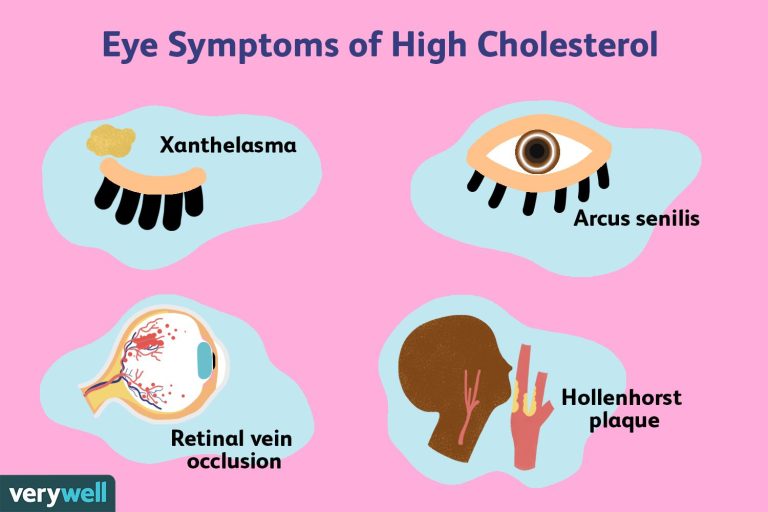Signs and Symptoms of Hyperlipidemia: Are You at Risk?Understanding Hyperlipidemia
Hyperlipidemia, or high cholesterol, often goes unnoticed until it leads to serious health problems, making it crucial to be aware of its signs and symptoms. Many people with hyperlipidemia don’t experience obvious symptoms, which is why regular check-ups are so important. If left unchecked, high cholesterol can lead to conditions like heart disease and stroke. Common indicators may include chest pain or discomfort, fatigue, and shortness of breath, especially during physical activity.
However, since these symptoms can also relate to other health issues, getting a proper diagnosis is essential. Consulting an internal medicine doctor Houston can help identify your risk and guide you on managing your cholesterol levels effectively. Early detection and lifestyle changes can significantly improve your heart health and overall well-being, so don’t hesitate to seek medical advice if you have concerns.
Common Signs and Symptoms
Hyperlipidemia is often a silent condition, meaning many people may not experience obvious symptoms. However, some signs may indicate that you should consult a healthcare provider. Common symptoms can include chest pain, particularly during physical activity, as well as fatigue and shortness of breath. These symptoms may arise when your heart struggles to get enough oxygen due to blocked coronary arteries.
It’s essential to pay attention to your body and recognize when something feels off. Regular check-ups with an internal medicine doctor Houston can help detect issues before they become serious.
Risk Factors for Hyperlipidemia
Several risk factors contribute to the development of hyperlipidemia. Family history of high cholesterol can increase your likelihood of experiencing elevated cholesterol levels, so it’s important to share this information with your doctor. Lifestyle choices also play a significant role; diets high in saturated fats and trans fats can raise LDL cholesterol.
Other factors, such as being overweight, lack of physical activity, smoking, and certain medical conditions like diabetes, can also elevate your risk. Being aware of these factors can empower you to make healthier choices and reduce your risk of developing hyperlipidemia.
Testing and Diagnosis
To determine if you have hyperlipidemia, your healthcare provider will likely recommend a lipid panel blood test. This test measures your cholesterol levels, including total cholesterol, LDL, HDL, and triglycerides. Understanding your cholesterol levels is crucial for managing your heart health. A total cholesterol level under 200 mg/dL is considered healthy, while levels between 200-239 mg/dL are borderline high, and 240 mg/dL or higher is high.
If your test results indicate hyperlipidemia, your internist in Houston can work with you to develop a personalized plan to manage your cholesterol levels and improve your overall health.
Managing Hyperlipidemia Through Lifestyle Changes
Managing hyperlipidemia often starts with lifestyle changes. A heart-healthy diet can make a significant difference; focus on consuming more fruits, vegetables, whole grains, and lean proteins while limiting saturated fats and trans fats. Engaging in regular physical activity is also essential; aim for at least 150 minutes of moderate exercise each week.
Additionally, quitting smoking and reducing alcohol intake can improve your cholesterol levels and overall heart health. Working closely with an internist doctor near me can help you create a tailored plan that fits your lifestyle and health needs.
Medications for Cholesterol Management
In some cases, lifestyle changes alone may not be enough to manage hyperlipidemia effectively. If your cholesterol levels remain high despite making changes, your doctor may prescribe medication to help lower them. Common medications include statins, which reduce LDL cholesterol levels, and other drugs that target triglycerides.
It’s important to take these medications as directed and to have regular follow-ups to monitor their effectiveness. Your healthcare provider can help you understand the potential benefits and side effects of each medication, ensuring you make informed decisions about your treatment.
The Importance of Regular Check-ups
Regular check-ups are vital for anyone at risk of hyperlipidemia. These appointments allow your healthcare provider to assess your cholesterol levels, evaluate risk factors, and adjust your management plan as needed. In Houston, TX, an internal medicine doctor Houston can provide comprehensive care tailored to your needs.
Keeping track of your cholesterol through routine blood tests can catch any changes early, allowing for timely interventions. Staying proactive about your health can significantly reduce your risk of heart disease and related complications.
Conclusion
In summary, understanding the signs and symptoms of hyperlipidemia is crucial for protecting your heart health. While many people may not notice any symptoms, it’s important to be aware of indicators like chest pain or fatigue. Recognizing these signs early can lead to timely intervention and better management of your cholesterol levels. If you have a family history of high cholesterol or other risk factors, consulting an internal medicine doctor Houston can provide valuable insights and guidance.
At Medical Clinic of Houston, we are here to help you navigate your health concerns. If you suspect you may be at risk for hyperlipidemia, call us for more information on how to take control of your heart health today!





